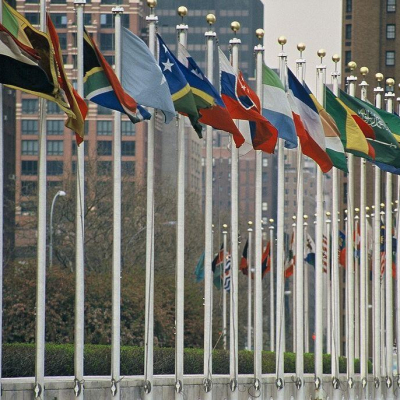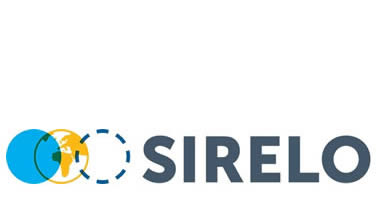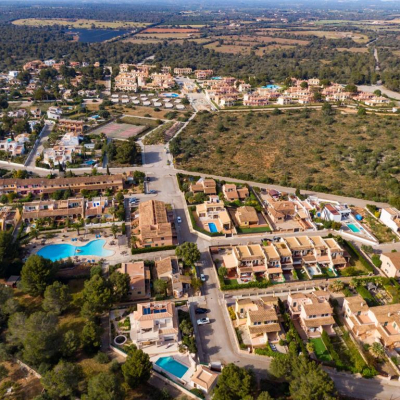Getting a Residence Permit in Spain

Residence is open to any European Union resident or European Economic Area resident and their families. If the spouse is not a member of the EU or EEA, they are entitled to the same rights as their partner and will be required to apply for a Número de Identificación de Extranjero (NIE) within the first 90 days of arrival.
For applicants who do not meet these criteria, a residence permit is required for stays of over 90 days for those wishing to work or own property. Residency is not the same as citizenship – residents qualify as students and investigators, family members of EU nationals and foreigners wishing to reside in Spain more than 165 days a year.
Note that while visas are not required for stays up to 90 days in most cases, any non-EU national will be required to apply for a visa in their home country, to be affixed in the passport and presented as part of the documentation required for a resident card, which should be solicited within 30 days of arrival to Spain.
Applying for Residency Cards
Any candidate wishing to apply for residency must first go to a Foreigner's Office (Oficina de Extranjeros) in the area in which they plan to reside in order to apply for a NIE. You must be registered in the Registro Central de Extranjeros, which will catalogue your personal information and where you live, which can be done at the time that you apply for your NIE. Since April 2007, the residence permit and NIE applications can be done jointly. These bureaus can be found in province capitals, larger cities or are sometimes absorbed by the local police. Click here for a list of all Foreigners’ Offices by province (Spanish language only).
European residents are strongly advised to get a NIE and its card, called a tarjeta de identificación extranjera (TIE). This card serves many purposes, and will help speed up bureaucratic matters, such as joining the social security program, buying property and paying taxes. Fees will vary by country of origin.
All documents issued outside of Spain must be legalized through a notary and have the Apostille of Hague attached. Foreign language documents should be translated into Spanish by a recognized translator. Documentation is only valid for 90 days, so you'll need to ensure your paperwork isn't expired, or you will be sent away.
This card counts are proof of residency for the allotted time given on the card. Students and investigators receive just one year permission, whereas spouses and children receive five years. If there are any changes to the marital status or resident address, these changes should be communicated to the Foreigners’ Office.
Paperwork Required for EU Nationals
You'll need to present the following items:
- Valid Passport or ID Card and a photocopy
- Completed and signed application form EX-18
- Proof of insurance
- Proof of financial means
- Three passport photos with a white background, sized 3”x4”
- Modelo 790, stamped by a bank as proof of payment, for the value of the card.
Paperwork Required for Non-EU Nationals
Residency is not automatic for non-EU nationals, so a barrage of additional paperwork is required, as well as additional fees.
Anyone whose country of origin is outside of the EU or EEA may be required to get a tourist visa for up to 90 days in Spain; anyone planning on doing business, studying or living for 91 days or more must apply for a visa through the nearest Spanish consulate in the home country. The expedition of this process will depend largely on the country of origin and the volume of applications received at that consulate.
Once you've arrived to Spain, you'll be asked to register at the Foreigner's Office, apply for a NIE and TIE, granting you residency rights. In addition to the valid passport, completed and signed application with three photocopies, Modelo 790 stamped by the bank as proof of receipt, and the three passport photos, applicants will also have to present:
- proof of address in Spain (called a padrón)
- A letter of invitation from an employer or educational institution
- Proof of financial means if not planning to work
- Proof of no prior criminal record
- Medical certificate of good health
- Proof of medical insurance
Information for Children and Other Family Members
Family members of EU citizens are entitled to the same rights as their EU national family members, regardless of their nationality. They are offered a Tarjeta de Familiar de Ciudadano de la Unión, or an EU National Family Member's card.
Like the temporary resident cards, the following materials must be presented at the Foreigner's Office and translated and legalized, when necessary:
- Valid Passport and photocopy
- Completed and signed form EX-19
- Proof of family relationship (marriage certificate, partner registration, birth certificate)
- Spanish ID card (DNI) or passport of the EU member
- Proof of payment of card fees
- Three color photographs with white background
Renewing Residence Permission
Renewals on residency permits can be made in the 60 days before and up to 90 days after expiration, in most cases. The residence card will state the fecha de caducación, or expiration date, on the front side, just above the signature.
The documentation listed above for families of EU members will be required, including an updated proof of family relationship. Plan ahead for any marriage or birth certificates not granted within Spain. Updated copies of the paperwork listed above are required upon application, as well as three new photographs.
By Cat Gaa, who left her native Chicago five years ago to live in the olive groves of Andalusia. Residing in Seville, she teaches first grade at a private school, but all she wants to really do is write.
- My Life Abroad -
A selection of expat stories

"A fun compulsive read!"
J. Matcham, Amazon
"I strongly advise people ready to live abroad to read this book!"
Patrice, Amazon

 Embassies and Consulates in Spain
Embassies and Consulates in Spain
 AGS Worldwide Movers
AGS Worldwide Movers Fexco payment solutions
Fexco payment solutions 1stMove Car Shipping
1stMove Car Shipping Why using an alternative broker for large money transfers
Why using an alternative broker for large money transfers